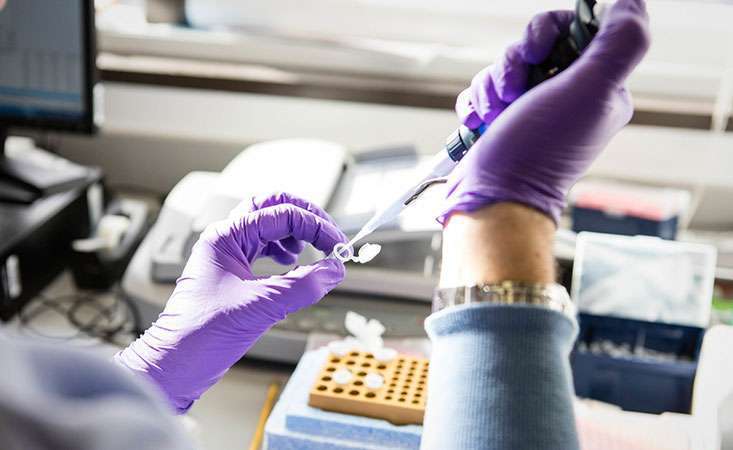
Editor’s Note: On Clinical Trials Day, we wanted to provide an overview of what the clinical trials process is and how these trials are making a difference for pancreatic cancer patients. PanCAN Patient Services case managers are always available to help patients, families and healthcare professionals understand clinical trials and the options available to them.
What Are Clinical Trials?
Clinical trials are research studies that investigate new treatments or new combinations of treatments.
Pancreatic cancer clinical trials are necessary to determine whether new treatments developed in the laboratory are beneficial to people living with pancreatic cancer.
The Food and Drug Administration (FDA) reviews and analyzes data from successful clinical trials to determine whether an experimental treatment should be approved for a specific disease or disorder, such as pancreatic cancer.
In the fight against pancreatic cancer, clinical trials often provide the best treatment options, and they give patients early access to cutting-edge treatments that can lead to progress in research, improved treatment options and better outcomes.
When Did Drug Testing Start?
The Food, Drug and Cosmetic Act, a ruling that provides consumer protection and legal guidelines for food, drugs, cosmetics and medical devices, was passed in 1938.
This act was created, in part, to protect people from untested drugs and ensure greater safety to the public.
According to an article published on the FDA website, “This [act] required FDA regulators to review both pre-clinical and clinical test results for new drugs.”
This law has been amended over time and is still in place today to guide how the FDA oversees clinical trials.
Who Are Clinical Trials for?
A common myth about clinical trials is that they are only for patients who have run out of other treatment options. But the truth is, patients who participate in clinical research have better outcomes, and clinical trials should be considered at diagnosis and during every treatment decision.
New clinical trials are continually being developed in pancreatic cancer. The trials in development aim to offer even greater options for patients.
Is Clinical Trial Participation Important?
Participation in clinical trials is crucial because it helps answer questions for patients.
Clinical trials give treatment insight and lead to better ways to prevent, detect and better understand the disease. Most important, they can help others and future generations with the same disease.
Clinical trials are the only way for researchers to make treatment progress and develop new treatment options for pancreatic cancer.
Clinical trials allow researchers to determine whether a new and potentially better treatment is safe and beneficial for patients, and they provide patients the opportunity to receive a promising new drug or treatment.
What Are Different Types of Clinical Trials?
There are different types of clinical trials to address various medical questions. Trials look at everything from new treatment options to screening methods. Clinical trials can be classified as:
- Treatment trials – test new treatments, new combinations of drugs or new approaches to surgery or radiation therapy. This is the most common type of clinical trial for pancreatic cancer.
- Prevention trials – look for ways to prevent cancer in healthy people. These trials are not common for pancreatic cancer.
- Maintenance trials – look for ways to prevent a cancer recurrence in patients who were successfully treated.
- Diagnostic trials – look for better tests or procedures for diagnosing cancer.
- Screening or surveillance trials – test for the best way to detect cancer in a large population.
- Supportive care (quality of life) trials – look for different ways to improve comfort and quality of life for individuals with cancer.
In pancreatic cancer clinical trials, three main study designs are used:
- Double-blind trials – neither the doctors nor the study participants know which treatment the patient is receiving. This helps to eliminate the bias doctors and patients may have toward a particular treatment.
- Single-blind trials – only the doctors know which treatment the participant is receiving. This helps avoid patient bias toward a particular treatment but allows the doctor to know which treatment is being administered.
- Open-label trials – everyone involved knows which treatment is being administered.
Interested in understanding how new drugs are approved through clinical trials? Learn more about the FDA drug treatment approval process, including phases of a clinical trial.
















